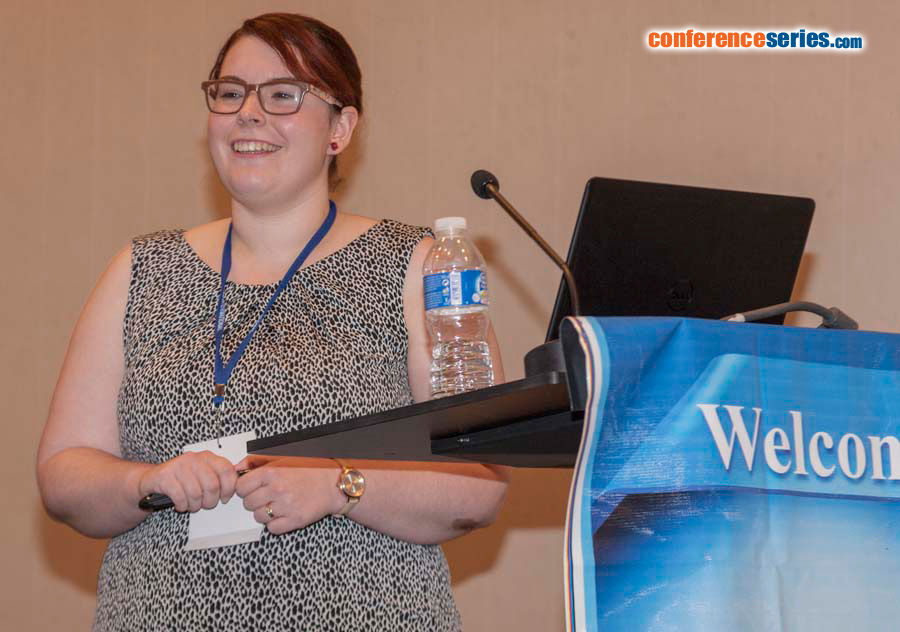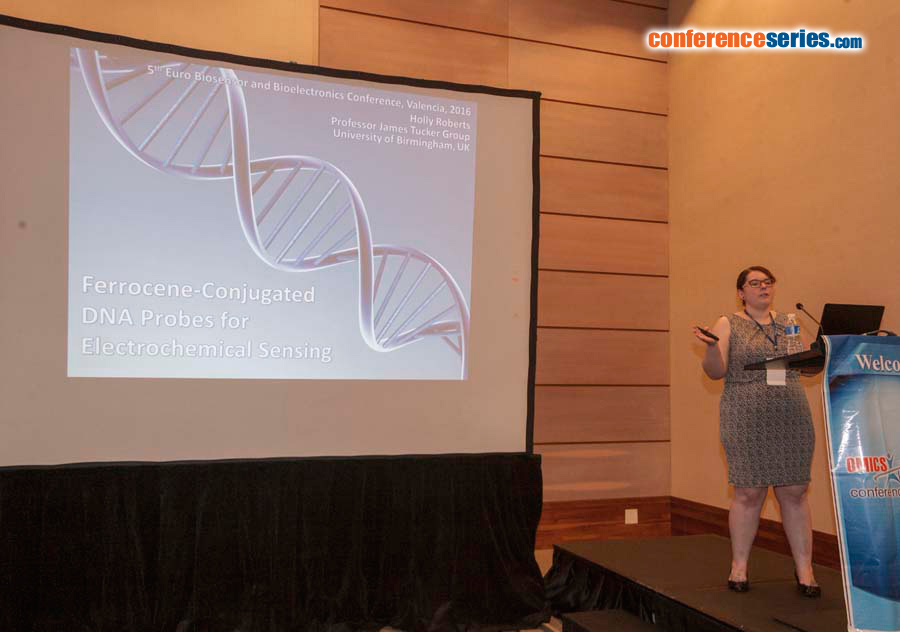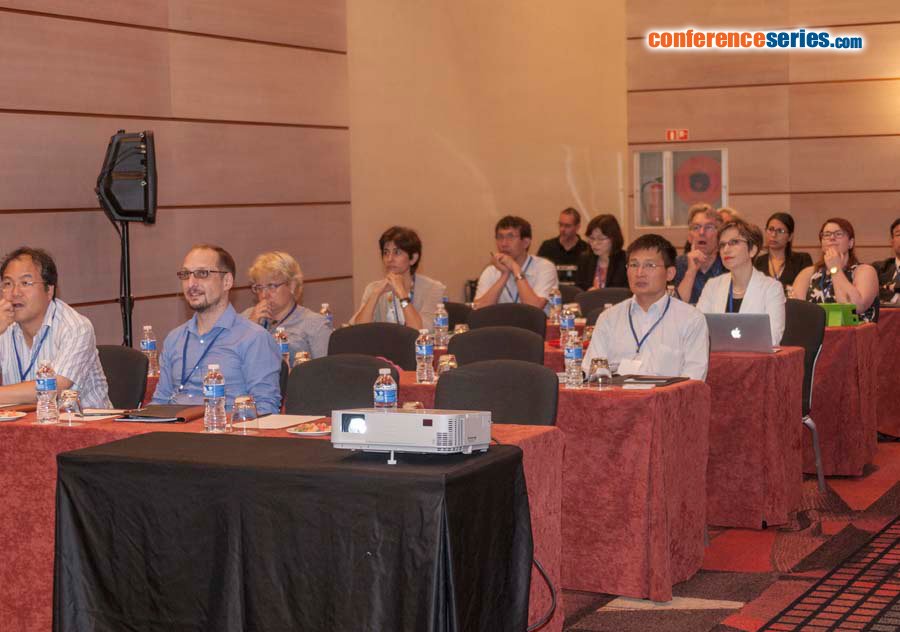
Holly Roberts
University of Birmingham, UK
Title: Development of modified ferrocenes DNA probes for electrochemical SNP sensing
Biography
Biography: Holly Roberts
Abstract
Ferrocene is used regularly as a redox reporter within DNA as it is easily manufactured within the lab, functionalisable, stable and has well defined electrochemical behaviour making it an excellent candidate for DNA sensing. We present a modified ferrocene unit for use as a DNA based surface bound electrochemical probe. Ferrocene modified with a base on each cyclopentadienyl ring has been synthesised and substituted for two of the sugar units in the DNA backbone using automated DNA synthesis. This allows for the unit to be placed as close as possible to the site of a DNA base variation or single nucleotide polymorphism (SNP) thus increasing the sensitivity of the probe. An FcNA octomer has also been synthesised and investigated using cyclic voltammetry with a view to using the functionalised ferrocene to produced nanowires and redox active nanomaterials. On a gold electrode, surface formation gives reproducible redox behaviour both single stranded and upon hybridisation. Investigations using Square Wave Voltammetry (SWV) suggest an unusual increase in current on binding to a complementary DNA strand due to the effect of increased molecular rigidity. There is also some variation between fully complementary and partially non-complementary DNA strands which shows early promise for SNP detection. The probe has shown good chemical and electrochemical stability, losing only 2% current signal over 150 scans. The ability to sense SNPs using an electrochemical group closely associated to the site of interest could give a sensitive, portable, reusable and rapid SNP detector leading to faster medical diagnosis.







